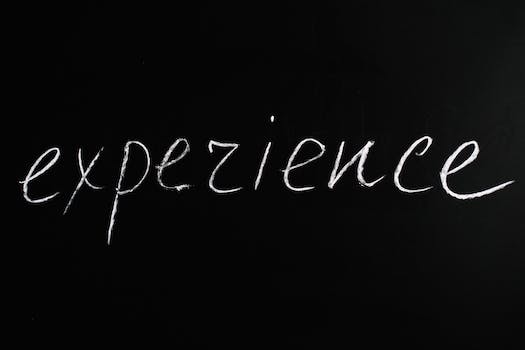

-
Table of Contents
Questioning Your Own Thoughts: The Key to Critical Thinking
Introduction
Questioning Your Own Thoughts: The Key to Critical Thinking
Critical thinking is a fundamental skill that enables individuals to analyze information, evaluate arguments, and make informed decisions. At the core of critical thinking lies the ability to question one's own thoughts and beliefs. By challenging our assumptions and biases, we can gain a deeper understanding of complex issues and arrive at more accurate conclusions. This introspective process allows us to overcome cognitive biases, enhance problem-solving abilities, and foster intellectual growth. In this article, we will explore the importance of questioning our own thoughts and how it serves as a key to developing critical thinking skills.
The Importance of Self-Reflection in Developing Critical Thinking Skills
The ability to think critically is a valuable skill that is highly sought after in today's society. Critical thinking allows individuals to analyze information, evaluate arguments, and make informed decisions. However, developing critical thinking skills is not an easy task. It requires practice, patience, and a willingness to question one's own thoughts and beliefs. This article will explore the importance of self-reflection in developing critical thinking skills.
Self-reflection is the process of examining one's own thoughts, feelings, and actions. It involves stepping back from a situation and objectively analyzing it. Self-reflection is a crucial component of critical thinking because it allows individuals to identify biases, assumptions, and logical fallacies that may be clouding their judgment.
When we engage in self-reflection, we are able to challenge our own thoughts and beliefs. We can ask ourselves why we hold certain opinions and whether they are based on evidence or personal biases. By questioning our own thoughts, we can uncover any flaws in our reasoning and make more informed decisions.
Self-reflection also helps us to become aware of our own cognitive biases. Cognitive biases are mental shortcuts that our brains use to make sense of the world. While these biases can be helpful in certain situations, they can also lead to errors in judgment. By reflecting on our own thought processes, we can identify and mitigate these biases, allowing us to think more critically.
Furthermore, self-reflection allows us to consider alternative perspectives. When we question our own thoughts, we open ourselves up to different viewpoints and ideas. This helps us to avoid confirmation bias, which is the tendency to seek out information that confirms our existing beliefs. By actively seeking out opposing viewpoints, we can broaden our understanding of a topic and make more well-rounded decisions.
In addition to questioning our own thoughts, self-reflection also involves examining our emotions. Emotions can often cloud our judgment and lead to irrational thinking. By reflecting on our emotions, we can better understand how they may be influencing our thoughts and decisions. This self-awareness allows us to separate our emotions from our reasoning and make more objective judgments.
Self-reflection is not always an easy process. It requires us to be honest with ourselves and confront any biases or flaws in our thinking. However, the benefits of self-reflection far outweigh the discomfort it may initially cause. By engaging in self-reflection, we can develop a more critical mindset and make better decisions in all aspects of our lives.
In conclusion, self-reflection is a crucial component of developing critical thinking skills. By questioning our own thoughts and beliefs, we can uncover biases, challenge assumptions, and make more informed decisions. Self-reflection also helps us to become aware of our cognitive biases and consider alternative perspectives. While self-reflection may be uncomfortable at times, it is a necessary step in becoming a more critical thinker. So, take the time to question your own thoughts and beliefs – it may just be the key to unlocking your full critical thinking potential.
Strategies for Challenging and Analyzing Your Own Thoughts

Questioning Your Own Thoughts: The Key to Critical Thinking
Strategies for Challenging and Analyzing Your Own Thoughts
Critical thinking is a valuable skill that allows individuals to evaluate information, solve problems, and make informed decisions. It involves the ability to think objectively and critically about a subject, considering different perspectives and evidence. One of the most important aspects of critical thinking is the ability to question your own thoughts and beliefs. By challenging and analyzing your own thoughts, you can gain a deeper understanding of a subject and make more informed decisions.
One strategy for challenging your own thoughts is to examine the evidence and reasoning behind them. When you have a thought or belief, ask yourself what evidence supports it. Is there any logical reasoning behind it? By critically evaluating the evidence and reasoning, you can determine whether your thoughts are based on solid foundations or if they are simply assumptions or biases.
Another strategy is to consider alternative perspectives. Often, we tend to have a narrow view of a subject, based on our own experiences and beliefs. By actively seeking out different perspectives, we can gain a more comprehensive understanding of a subject. This can be done by reading different sources, engaging in discussions with others who have different viewpoints, or even imagining yourself in someone else's shoes. By considering alternative perspectives, you can challenge your own thoughts and broaden your understanding.
It is also important to be aware of cognitive biases that may influence your thinking. Cognitive biases are mental shortcuts that our brains use to make quick judgments and decisions. While these biases can be helpful in certain situations, they can also lead to errors in thinking. By being aware of common biases such as confirmation bias (the tendency to seek out information that confirms our existing beliefs) or availability bias (the tendency to rely on readily available information), you can actively challenge and analyze your own thoughts to ensure they are not influenced by these biases.
Another strategy for challenging your own thoughts is to engage in self-reflection. Take the time to reflect on your thoughts and beliefs, and ask yourself why you hold them. Are they based on personal experiences, cultural influences, or societal norms? By understanding the underlying reasons for your thoughts, you can better evaluate their validity and make more informed decisions.
Furthermore, it can be helpful to seek feedback from others. By sharing your thoughts and ideas with others, you can gain different perspectives and insights. Others may be able to point out flaws in your thinking or provide alternative viewpoints that you may not have considered. This can help you challenge and analyze your own thoughts more effectively.
In conclusion, questioning your own thoughts is a crucial aspect of critical thinking. By challenging and analyzing your thoughts, you can gain a deeper understanding of a subject, consider alternative perspectives, and make more informed decisions. Strategies such as examining evidence and reasoning, considering alternative perspectives, being aware of cognitive biases, engaging in self-reflection, and seeking feedback from others can all help in this process. By actively questioning your own thoughts, you can develop your critical thinking skills and become a more effective thinker.
Overcoming Cognitive Biases: Examining Assumptions and Beliefs
Questioning Your Own Thoughts: The Key to Critical Thinking
Overcoming Cognitive Biases: Examining Assumptions and Beliefs
Critical thinking is a valuable skill that allows individuals to analyze information objectively and make informed decisions. It involves questioning assumptions, beliefs, and thoughts to uncover biases and arrive at logical conclusions. However, our minds are prone to cognitive biases, which can hinder our ability to think critically. Overcoming these biases requires a conscious effort to examine our assumptions and beliefs.
One common cognitive bias is confirmation bias, which is the tendency to seek out information that confirms our existing beliefs while ignoring or dismissing contradictory evidence. This bias can prevent us from considering alternative viewpoints and hinder our ability to think critically. To overcome confirmation bias, it is essential to actively seek out diverse perspectives and challenge our own beliefs.
Another cognitive bias is the availability heuristic, which is the tendency to rely on readily available information when making judgments or decisions. This bias can lead to inaccurate assessments and prevent us from considering all relevant information. To overcome the availability heuristic, it is important to gather comprehensive and reliable data before drawing conclusions.
Anchoring bias is yet another cognitive bias that can hinder critical thinking. It occurs when we rely too heavily on the first piece of information we encounter when making judgments or decisions. This bias can lead to skewed perceptions and prevent us from considering other relevant factors. To overcome anchoring bias, it is crucial to gather multiple sources of information and consider a range of perspectives.
In addition to these biases, our assumptions and beliefs can also influence our critical thinking. Assumptions are ideas or beliefs that we take for granted without questioning their validity. They can limit our ability to think critically by creating a narrow perspective. To overcome assumptions, it is important to question the underlying basis of our beliefs and consider alternative explanations.
Beliefs, on the other hand, are deeply held convictions that shape our worldview. They can be influenced by cultural, social, and personal factors. While beliefs can provide a sense of identity and purpose, they can also hinder critical thinking by creating a filter through which we interpret information. To overcome the influence of beliefs, it is crucial to approach new information with an open mind and be willing to challenge our preconceived notions.
Examining assumptions and beliefs requires a willingness to question ourselves and be open to new ideas. It involves actively seeking out diverse perspectives, gathering comprehensive information, and considering alternative explanations. By doing so, we can overcome cognitive biases and develop a more objective and logical approach to critical thinking.
In conclusion, critical thinking is a valuable skill that allows individuals to analyze information objectively and make informed decisions. Overcoming cognitive biases is essential for effective critical thinking. By questioning assumptions and beliefs, we can overcome biases such as confirmation bias, availability heuristic, and anchoring bias. Additionally, examining our assumptions and beliefs allows us to broaden our perspective and approach information with an open mind. By actively engaging in critical thinking, we can make more informed decisions and navigate the complexities of the world around us.
Q&A
1. Why is questioning your own thoughts important for critical thinking?
Questioning your own thoughts is important for critical thinking because it helps to challenge assumptions, biases, and preconceived notions, allowing for a more objective and rational analysis of information.
2. How can questioning your own thoughts improve critical thinking skills?
Questioning your own thoughts can improve critical thinking skills by promoting self-reflection, encouraging open-mindedness, and fostering a deeper understanding of complex issues.
3. What are some strategies for effectively questioning your own thoughts?
Some strategies for effectively questioning your own thoughts include examining evidence and sources, considering alternative perspectives, identifying logical fallacies, and seeking feedback from others to challenge and refine your thinking.
Conclusion
Questioning your own thoughts is the key to critical thinking. By challenging our own beliefs, assumptions, and biases, we can develop a more objective and rational perspective. This process allows us to evaluate information more effectively, make informed decisions, and avoid falling into cognitive traps. Ultimately, questioning our own thoughts fosters intellectual growth and enhances our ability to think critically in various aspects of life.










